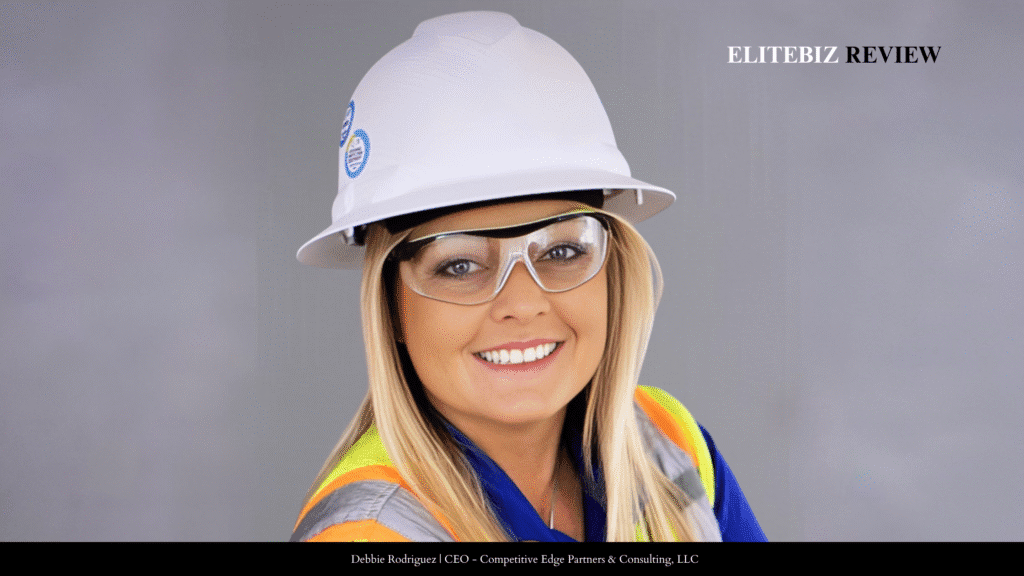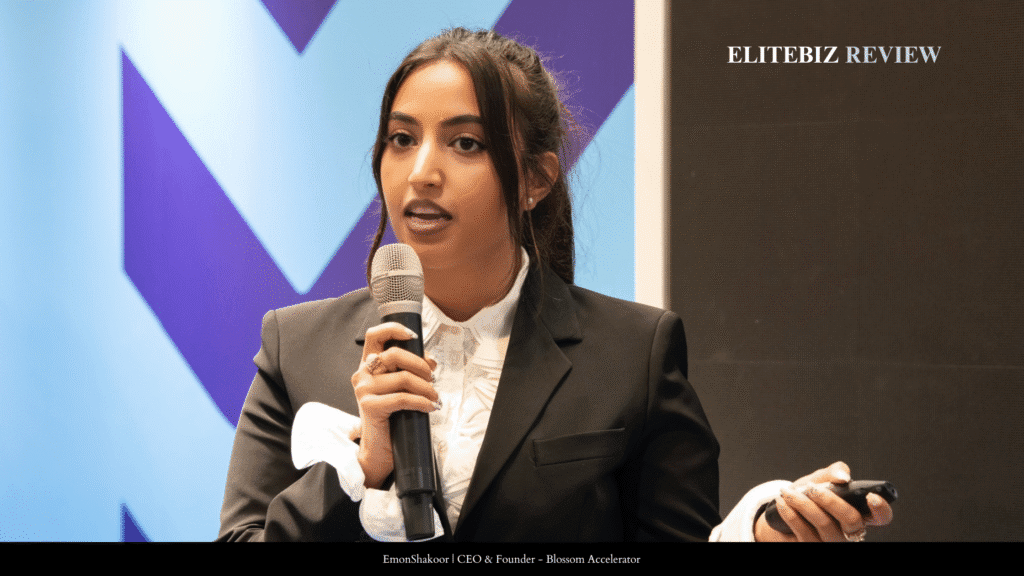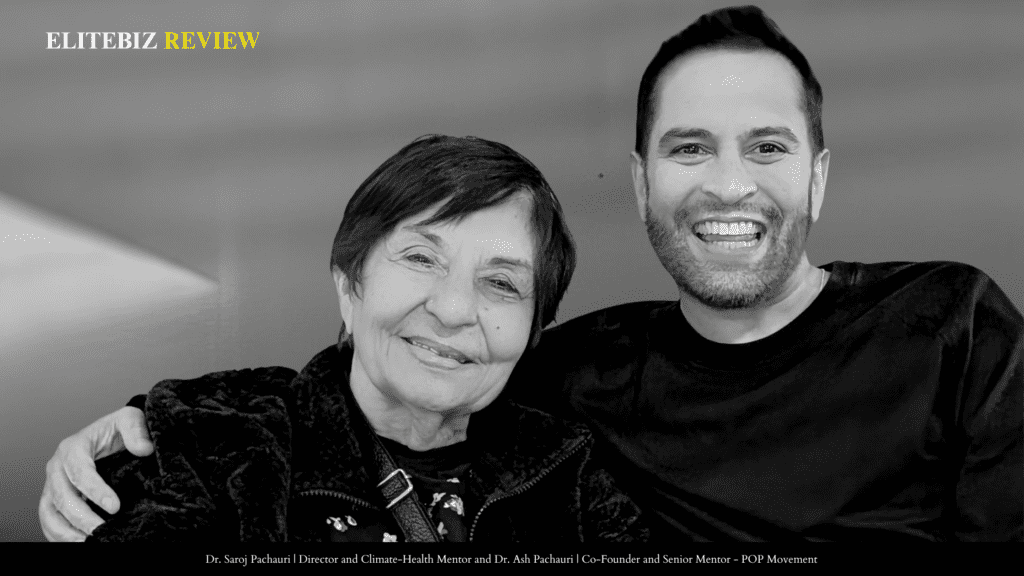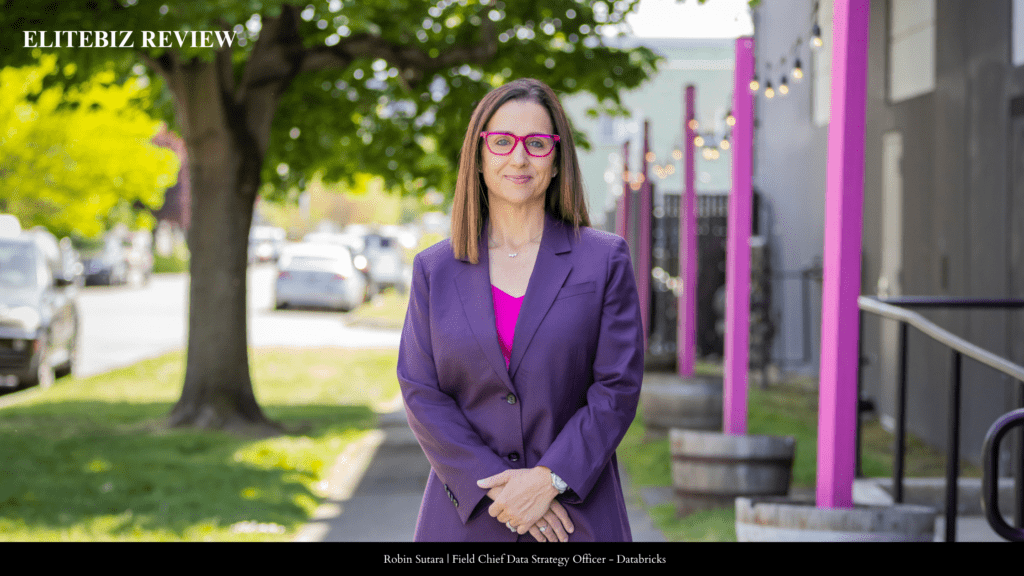Debbie Rodriguez’s Inspiring Journey from the Field to the Forefront of Construction Leadership
Digital Version In a field long defined by concrete, steel, and tradition, Debbie Rodriguez has carved out something far more enduring: a legacy rooted in people. As the CEO of Competitive Edge Partners & Consulting, LLC, she is not only reshaping how projects are built but also redefining how people in the construction industry are valued, respected, and empowered. Her journey from staffing to construction leadership reflects determination, resilience, and a philosophy that puts people at the center of progress. A Path Built on Purpose Debbie’s introduction to construction came in an unconventional way—through staffing. In 2008, she co-founded Quality Labor Management (QLM), a skilled staffing company that supported industries like construction, logistics, and manufacturing. While working closely with construction workers, she noticed a troubling trend: too many of them were not treated with the respect they deserved. That realization struck a chord. For Debbie, staying silent was never an option. Instead, she decided to build something different—a company that valued relationships as much as results. This decision gave rise to Competitive Edge Partners & Consulting, LLC, a firm designed to be people-first in every sense. But Debbie’s story is about more than business—it’s about resilience, faith, and defying the odds. In February 2008, she was involved in a devastating motorcycle accident. Doctors told her family that her chances of survival were slim, and even if she made it through, paralysis was almost certain. Yet Debbie refused to let that prognosis define her. In the months that followed, she chose not to dwell on fear or self-pity. Instead, she saw the accident as a turning point—a chance to re-evaluate her life and her purpose. With determination, grit, and an unshakable spirit, Debbie made a full recovery—defying every expectation. From that moment forward, she committed herself to making a difference in the lives of others. Helping others isn’t just part of her work—it’s her passion, her calling, and something she lives out every single day. “Construction wasn’t just about building projects,” she reflects. “It was about building people, giving them opportunities to grow, and creating a culture where they could thrive.” Breaking Barriers in a Male-Dominated Industry The construction industry has long been considered a male-dominated space, rooted in tradition and slow to change. But leaders like Debbie Rodriguez are proving that the future of the industry looks very different. As CEO of CEP and co-founder of QLM and iBuild Central Florida, she has created an ecosystem that not only adapts to change—but drives it. Her values—safety, accountability, commitment, integrity, and passion—became her compass. She chose to lead with respect and humanity, reminding people that “we all put on our pants the same way.” That people-first mindset has fueled her leadership across all three companies, positioning them as catalysts for lasting change. QLM connects people with opportunities, iBuild develops their skills, and CEP provides a platform for them to grow and influence others. Together, they create a full-circle system: finding talent, training it, and empowering it to make an impact. Embracing Change in a Rapidly Evolving Industry The construction industry is undergoing a profound transformation. With new technologies, digital tools, and sustainability practices becoming the norm, adaptation is no longer optional—it is essential. At CEP, adaptation begins with people. Debbie believes the best way to prepare for change is to invest in training and development. Whether mastering new technologies, adopting safer methods, or embracing sustainability, her focus is on equipping the workforce with the skills and confidence they need to succeed. She envisioned iBuild in 2015 as a way to connect education with industry, and by 2016, the nonprofit became a reality. Since then, it has grown into a cornerstone of workforce development in Central Florida, preparing students with hands-on experiences, exposure to technology, and pathways to meaningful careers. “Innovation and sustainability matter,” Debbie notes, “but it’s people who bring those changes to life. When you build a culture that values learning and accountability, you are not just responding to change—you are leading it.” Supporting Women and Underrepresented Groups For Debbie Rodriguez, inclusivity is more than a principle—it is a practice. She has long championed women and underrepresented groups in construction, recognizing that diversity strengthens both companies and communities. At CEP, respect and support are foundational. Women are given opportunities to grow and lead, breaking barriers in what has traditionally been a male-dominated space. For underemployed, economically disadvantaged, justice-involved individuals, or those learning English, the company offers mentorship, training, and encouragement to help them build futures with dignity and hope. She also partners with organizations such as the Associated Builders and Contractors (ABC), the National Association of Women in Construction (NAWIC), and the Hispanic Chamber of Commerce of Central Florida to ensure diverse voices and talents are represented across the industry. Through iBuild, students from all backgrounds gain skills and confidence, discovering opportunities they may never have imagined. Preparing for the Future of Construction Looking ahead, Debbie sees three major trends shaping the construction industry over the next five years: Workforce Development – As older generations retire, the need for skilled new workers will intensify. Technology and Automation – From digital project management to advanced tools, technology will continue to change how projects are executed. Sustainability – Clients and communities will increasingly expect greener, more energy-conscious building practices. CEP is preparing by doubling down on people-first strategies: training and development, safety and sustainability, and building a pipeline of future talent through iBuild. Impactful Initiatives and Workforce Development Among the many initiatives Debbie has championed, iBuild Central Florida stands out as one of her proudest achievements. Envisioned in 2015 and launched in 2016, the program was created to address the skilled labor shortage. It has since grown into a coalition of more than 400 partners. Together, they introduce thousands of students to construction careers, provide pre-apprenticeship opportunities, and train adults—including those from underrepresented or disadvantaged backgrounds—for direct entry into jobs. At CEP, Debbie also looks within her current staff to train and promote talent, ensuring long-term growth and opportunity. By focusing on respect, opportunity,



